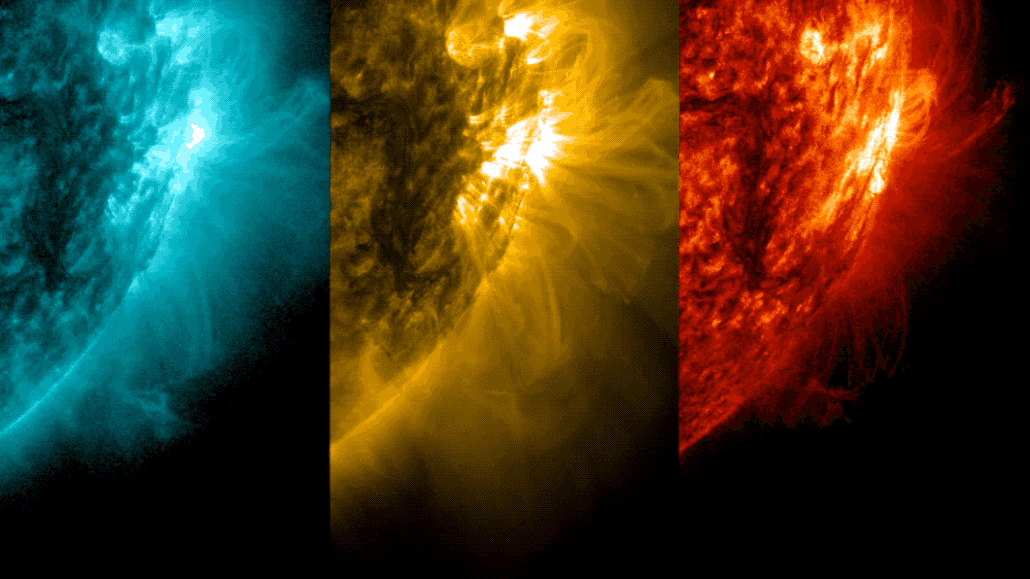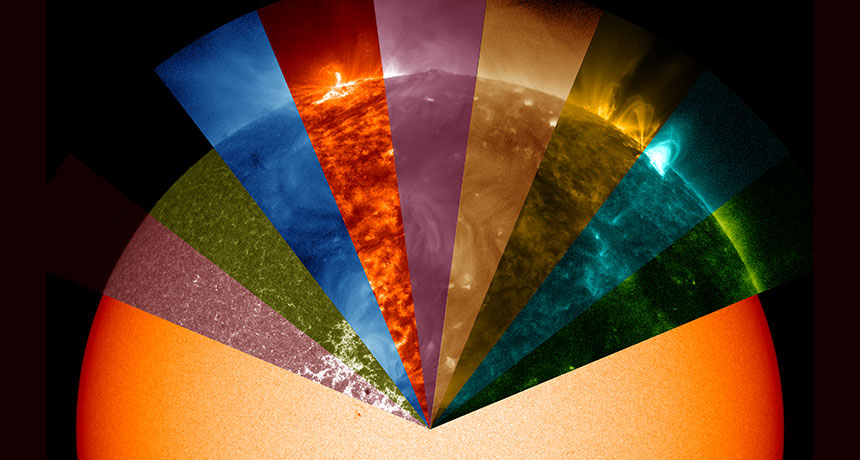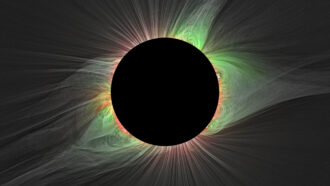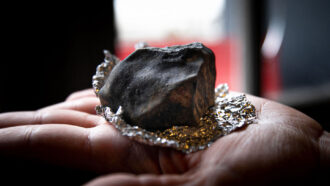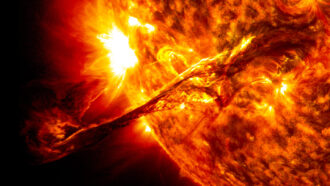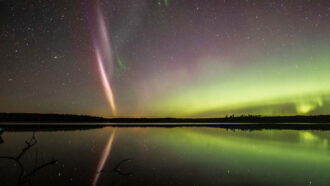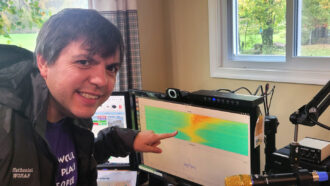The movie ‘First Man’ captures early spaceflight’s terror
This Neil Armstrong biopic takes a surprisingly somber tone
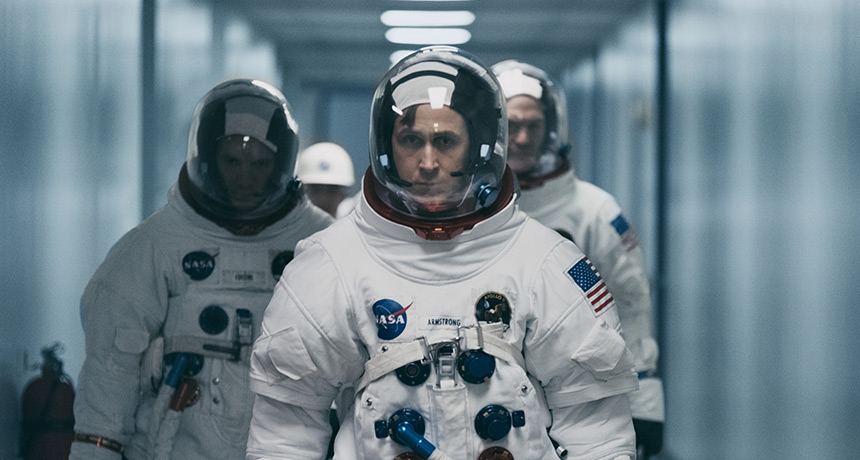
In this image from First Man, Ryan Gosling as Neil Armstrong walks to the Apollo 11 spacecraft before taking off for his historic moon landing.
Universal Pictures
Neil Armstrong is famous for being the first man on the moon. But the movie about him, First Man, is not entirely about that. This biopic, which opened October 12, follows about eight years of Armstrong’s life and spends only about eight minutes depicting the lunar surface. Many movies on the space race focus on things like the triumphant ticker tape parades that hailed the men after their successful flights. First Man focuses instead on the terror, grief and heartache that led to that one small step.
“It’s a very different movie and storyline than people expect,” says James Hansen. He wrote the 2005 biography of Armstrong that shares the film’s name. He was also a consultant on the film.
The story opens in January 1962. It’s shortly before Armstrong’s 2-year-old daughter, Karen, died of a brain tumor. That loss hangs over the rest of the film. It also sets the movie’s surprisingly somber emotional tone. First Man is darker than most space movies. Colors are muted. The music is ominous or absent. A lot of scenes include only ambient sounds. For instance, you may hear only a pen scratching on paper, a glass breaking or a phone clicking into the receiver.
Karen’s death also seems to motivate the rest of Armstrong’s journey. As portrayed by Ryan Gosling, Armstrong never says exactly what motivated him to apply to NASA’s astronaut program. But he may have been trying to get a fresh start while grieving the loss of his young daughter. And without giving too much away, a private moment Armstrong takes at the edge of Little West crater on the moon recalls his enduring bond with her.
Hansen’s book also makes the case that Karen’s death motivated Armstrong’s astronaut career. Armstrong’s oldest son, Rick, was 12 when his father landed on the moon. And he agrees that it’s plausible the death was related. “But it’s not something that he ever really definitively talked about,” Rick Armstrong says.
Armstrong’s reticence about Karen — and almost everything else — is true to life. That’s not all the film got right. Gosling captured the serious side of Armstrong as well as his humor. And as his wife, Janet, Claire Foy “is just amazing,” Rick Armstrong says.
The filmmakers went to great lengths to make the technical aspects of spaceflight historically accurate. The Gemini and Apollo cockpits that Gosling sits in are replicas of the real spacecraft. And he flipped switches and hit buttons that would have controlled real flight. Much of the dialog during space scenes was taken verbatim from NASA’s control room logs, Hansen says.
The result is a good sense of how frightening and risky those early flights were. The spacecraft rattled and creaked like they were about to fall apart. The scene of Armstrong’s flight on the 1966 Gemini 8 mission is terrifying. That flight ended early when the spacecraft spun out of control and almost killed its passengers. The 1967 fire inside the Apollo 1 spacecraft is gruesome. (The fire killed astronauts Ed White, Gus Grissom and Roger Chaffee.)
“We wanted to treat that one with extreme care and love and get it exactly right,” Hansen says. “What we have in that scene, none of it’s made up.”
Meanwhile, present-day astronauts are not immune to harrowing brushes with death. A Russian Soyuz capsule carrying two astronauts malfunctioned on October 11. The astronauts had to evacuate in an alarming “ballistic descent.” NASA is currently talking about when and how to send astronauts back to the moon from American soil. The first commercial-crew astronauts, who will test spacecraft built by Boeing and SpaceX, were announced in August.
First Man is a timely and sobering reminder of the risks involved in taking these giant leaps.
